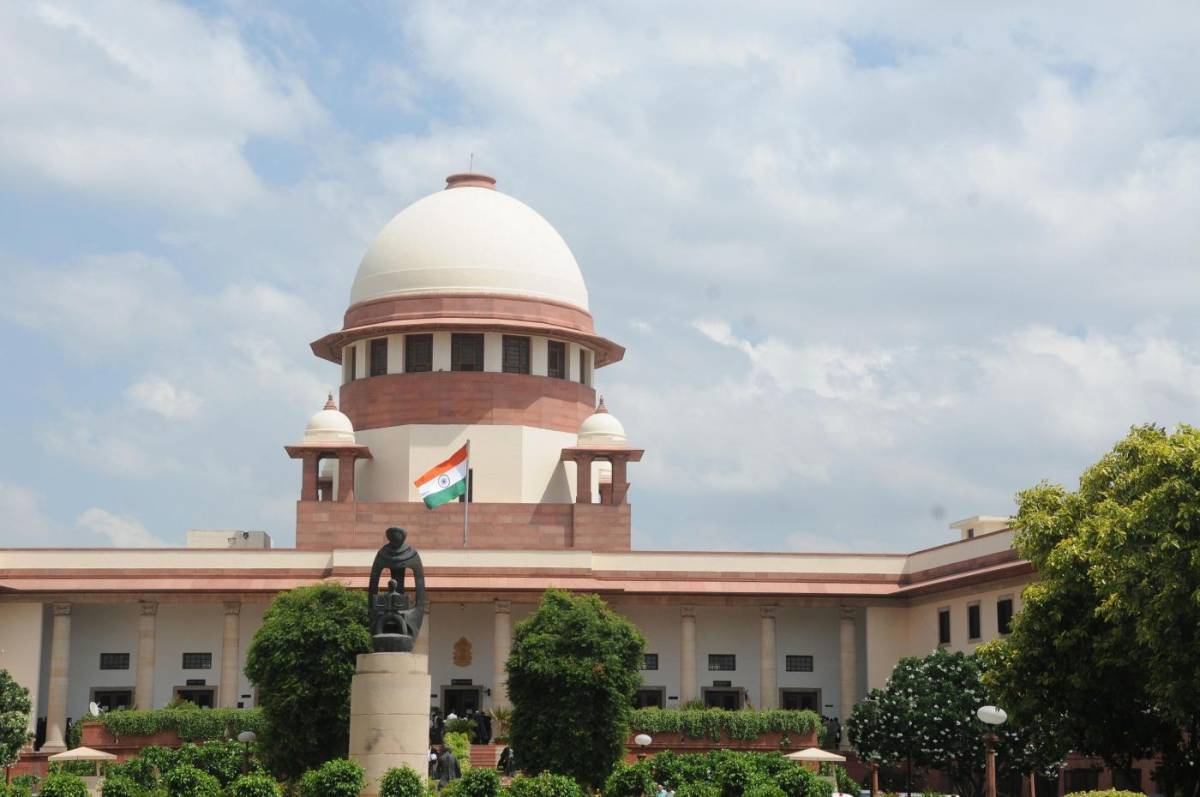A counsel argued that most of the freebies are not part of the manifesto but are declared during rallies and speeches…reports Asian Lite News
The Centre on Thursday asked the Supreme Court to lay down guidelines to regulate the freebies announced by political parties to induce voters, till the legislature devises a mechanism. The issues associated with freebies were also acknowledged by the apex court, which observed that the economy losing money and the welfare of the people, both have to be balanced.
A bench headed by Chief Justice N.V. Ramana and comprising Justice Krishna Murari noted that irrational freebies are definitely an issue of concern and there should be financial discipline. They however pointed out that in a country like India, where poverty is an issue, how could poverty be ignored.
Solicitor General Tushar Mehta, representing the Centre, said: “We are proposing a committee, comprising secretary, central government, secretary of each state government, representative of each political party, representative of Niti Aayog, RBI, Finance Commission, National Taxpayers Association and others.” He added that till the legislature steps in, the court may lay down something.
The top court declined to consider a plea for de-recognising parties for making promises to give freebies and noted that idea to de-recognise political parties for making promises to give irrational freebies during the polls was ‘undemocratic’. “I do not want to enter the area of de-registering a political party etc. as it is an undemocratic idea…We are a democracy after all,” the Chief Justice said.
A counsel argued that most of the freebies are not part of the manifesto but are declared during rallies and speeches. The bench said it is a serious issue and added that people who are opposing freebies have a right to say, since they are paying tax and expect that amount should be spent on building infrastructure etc and not in distributing money. The Chief Justice said the expert panel can look into it, and it cannot get into making legislation.
The Chief Justice said the question is to what extent the court can interfere or go into the issue? He reiterated that it is a serious issue and pointed out various schemes introduced by the Centre and state governments for the welfare of the people. Mehta said freebies cannot be welfare, and there are other scientific ways to provide welfare to the people. He added that now elections are only fought on the ground of freebies. “If freebie is considered to be for the welfare of the people, it’ll lead to a disaster,” said Mehta.
The petitioner claimed RBI data shows that the total outstanding liabilities of the states as on March 31, 2021 are a staggering Rs 59,89,360 crore. Senior advocate Vikas Singh, representing the petitioner Ashwini Upadhyay, emphasised on financial discipline, and said “Where would this money come from? We’re tax payers?”.
Citing the distribution of gold chains and TVs by political parties, senior advocate Arvind Datar said there was a decision by this court which states that giving freebies is adhering to the Directive Principles of State Policy under the Constitution, which needs to be looked into.
The bench noted that financial discipline has to be there and the economy losing money and welfare of the people, both have to be balanced.
The Chief Justice said he does not want to encroach on areas meant for legislation. Senior advocate Abhishek Manu Singhvi, representing the Aam Aadmi Party, said there is confusion between freebies and welfare, the word freebies is used in a very wrong manner.
After hearing the arguments, the top court scheduled the matter for further hearing on August 17. The court had sought suggestions from stakeholders and recommended setting up an expert panel to scrutinise the issues associated with irrational freebies.
On Wednesday, the Election Commission (EC) told the Supreme Court that being a constitutional body, it should be kept away from the panel of experts -representing a wide spectrum of governmental and non-governmental bodies – proposed to deliberate on the issue of validity of freebies announced by the political parties to induce voters during polls. In the previous hearing in the matter, the top court had orally expressed its discontent with the EC for not taking a stand on the menace of freebies offered by political parties.
The top court was hearing a PIL by Upadhyay seeking directions to the Centre and the Election Commission to take steps to regulate poll manifestos of political parties and to hold parties accountable for promises made in such manifestos.
ALSO READ-NITI Aayog finalises privatisation list

Leave a Reply